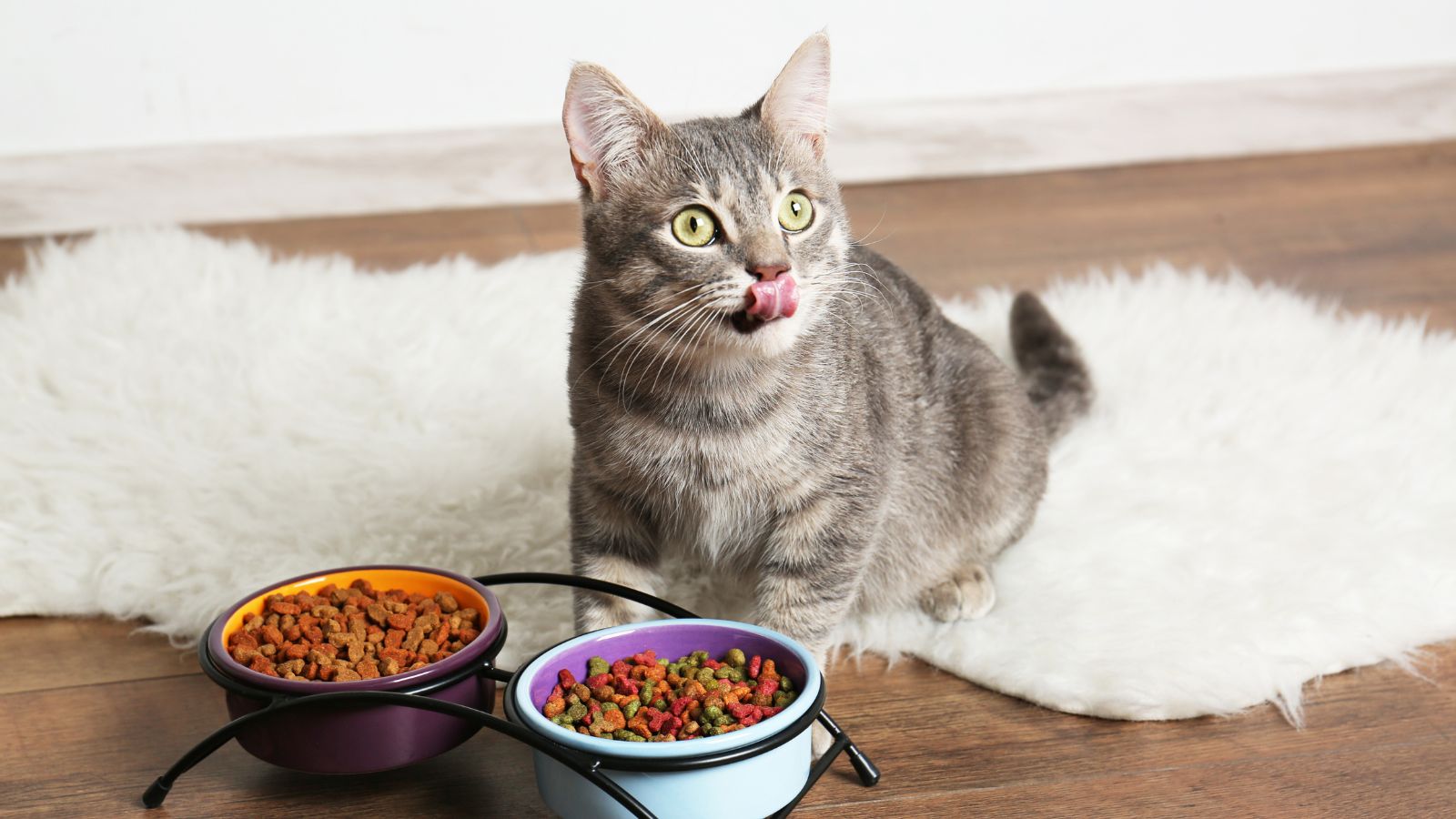Feeding your cat a proper diet is crucial for their health and longevity. A balanced diet for cats should consist primarily of high-quality animal proteins, moderate amounts of fat, and minimal carbohydrates. This mimics their natural diet as obligate carnivores in the wild.

When choosing cat food, look for options that list meat as the first ingredient. Avoid foods with excessive fillers, artificial preservatives, or by-products. Wet food can be beneficial for cats, as it provides extra hydration and often contains higher protein content than dry kibble.
Some foods to avoid include onions, garlic, chocolate, caffeine, and alcohol, which can be toxic to cats. It’s also important to consult with your veterinarian about your cat’s specific dietary needs, as factors like age, weight, and health conditions can impact their ideal diet.
Fundamentals of Feline Nutrition
Proper nutrition is essential for your cat’s health and longevity. A balanced diet supports optimal body function, immune system strength, and overall well-being.
Macronutrients for Cats
Protein is the cornerstone of feline nutrition. Cats are obligate carnivores, requiring high-quality animal proteins like chicken for muscle maintenance and growth. Aim for diets with 30-40% protein content.
Fats are crucial for energy and coat health. Look for foods with 15-20% healthy fats, including omega-3 and omega-6 fatty acids. These support skin condition and reduce inflammation.
Carbohydrates play a minor role in cat diets. While not essential, small amounts can provide energy and fiber. Limit carbs to less than 10% of the diet.
Essential Vitamins and Minerals
Vitamins A, D, E, and B complex are vital for various bodily functions. Ensure your cat’s food contains these in appropriate amounts.
Minerals like calcium, phosphorus, and potassium are critical for bone health and cellular function. A balanced ratio of calcium to phosphorus (1:1 to 1.5:1) is ideal for adult cats.
Taurine, an amino acid, is essential for heart and eye health. Cats can’t produce it naturally, so it must be in their diet.
Hydration and Its Importance
Water is crucial for your cat’s health, supporting digestion, circulation, and waste removal. Cats often have a low thirst drive, so encourage water intake.
Provide fresh, clean water daily. Consider wet food, which has higher moisture content (70-80%), to boost hydration.
Proper hydration supports renal health, reducing the risk of urinary tract issues. It also aids in maintaining healthy skin and coat.
Optimal Foods for a Balanced Cat Diet
A balanced cat diet includes high-quality protein sources, essential fats, and digestible carbohydrates. These components work together to support your feline friend’s overall health and well-being.
Protein Sources: Meats and Alternatives
Cats are obligate carnivores, requiring animal-based proteins for optimal health. Chicken, turkey, and fish like salmon are excellent lean protein sources. These meats provide essential amino acids that cats can’t produce on their own.
Organ meats, such as liver and heart, are nutrient-dense options. They’re rich in vitamins and minerals, including taurine, which is crucial for heart and eye health.
For variety, you can offer eggs or small amounts of plant-based proteins like peas or lentils. However, these should not replace animal proteins in your cat’s diet.
The Role of Fats in a Cat’s Diet
Fats are a vital energy source for cats and aid in the absorption of fat-soluble vitamins. Omega-3 fatty acids, found in fish oil or krill oil, support skin health, reduce inflammation, and promote a shiny coat.
Unsaturated fats from sources like chicken fat or sunflower oil contribute to a healthy diet. These fats help maintain body temperature and protect organs.
Avoid overfeeding fats, as this can lead to obesity. Aim for a balanced fat content in your cat’s meals, typically around 20-24% of their diet.
Fiber-Rich Foods for Digestive Health
While cats don’t require large amounts of fiber, some is beneficial for digestive health. Pumpkin, sweet potatoes, and green beans are good sources of digestible fiber.
These fiber-rich foods can help prevent hairballs and promote regular bowel movements. They also support a healthy gut microbiome.
Introduce fiber gradually to avoid digestive upset. Start with small amounts mixed into your cat’s regular food. Monitor your cat’s response and adjust as needed.
Foods to Avoid in Your Cat’s Diet
Certain foods can be harmful or even toxic to cats. It’s crucial to know which ingredients and substances to keep out of your feline friend’s diet.
Common Harmful Ingredients
Chocolate is highly toxic to cats and should never be given as a treat. Caffeine can cause restlessness and rapid breathing in cats, so avoid coffee, tea, and energy drinks. Alcohol is extremely dangerous and can lead to severe liver and brain damage.
Onions and garlic can damage a cat’s red blood cells, potentially causing anemia. Grapes and raisins may cause kidney failure in cats. Raw eggs carry a risk of salmonella or E. coli contamination.
Xylitol, an artificial sweetener found in many sugar-free products, can cause a rapid drop in blood sugar and liver failure in cats.
Risks of Processed and Spiced Foods
Processed foods often contain high levels of sodium, which can increase your cat’s blood pressure and contribute to heart disease. Excessive salt intake may also lead to dehydration and electrolyte imbalances.
Many human foods contain added sugars that can contribute to obesity and dental problems in cats. Avoid giving your cat table scraps or processed snacks meant for humans.
Spicy foods can irritate your cat’s digestive system, potentially causing vomiting or diarrhea. Strong spices may also lead to bloating and discomfort.
Some commercial cat foods contain unnecessary fillers or artificial preservatives. Opt for high-quality, limited ingredient diets like Merrick Limited Ingredient Diet to minimize potential allergens and harmful additives.
